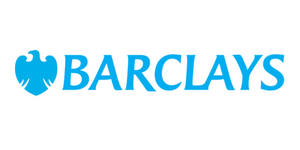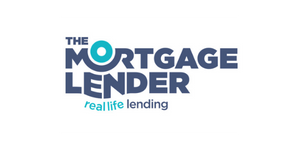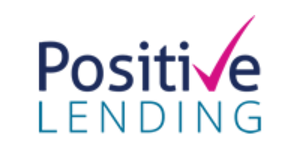If you’re considering an interest-only mortgage, you’re in the right place! Our team of experienced mortgage advisors specialise in interest-only mortgage solutions. We also give you access to the whole of the UK market including exclusive rates from specialist lenders.
Whether you’re buying your first home, moving to a new one, or remortgaging, we’ll help you explore your interest-only mortgage options to ensure that you get the best possible interest-only mortgage deal for your needs.
What is an interest-only mortgage?
An interest-only mortgage allows you to pay just the interest on your loan each month, keeping your monthly payments lower compared to a standard repayment mortgage. However, your loan balance doesn't reduce over time, meaning you'll still owe the full amount at the end of the term.
You'll need a plan in place to repay the principal when the time comes, whether that’s through a savings plan, pension, or even the sale of the property, this is called a “repayment vehicle”.
Interest-only mortgages can work well for people who want lower monthly payments, but they come with the responsibility of ensuring that the full loan is repaid when the mortgage term ends.
Calculate how much you might be able to borrow on an interest-only mortgage now – it’s quick & easy and no credit checks are required!
Who might be suited to an interest-only mortgage?
Interest-only mortgages can work for many types of borrowers, especially those looking to keep their monthly payments lower. Whether you’re a first-time buyer, remortgaging, or a buy-to-let investor, this option offers flexibility. In high-cost areas like Cambridge, Oxford and more, an interest-only mortgage can even be a more affordable way to get on the property ladder compared to renting.
Buy-to-let investors often use interest-only mortgages to maximise their rental yields while planning to pay off the capital later, usually from the sale of the property. Interest-only payments can also help self-employed individuals or those with fluctuating incomes keep their budgeting on track. However, it’s important to remember that not all lenders offer interest-only mortgages, and not everyone is eligible. We’ll help you determine if this option is right for you.
- Ready to See If You Qualify? Contact Us for Expert advice -

Advice on interest-only mortgages
Interest-only mortgages offer a flexible way to manage a loan, whether you're buying a home or investing in property. While monthly payments are lower compared to repayment mortgages, you’ll still need to repay the full capital at the end of the term. If you're confident about having the funds to repay the principal later, this could be a good option.
Interest rates on interest-only mortgages are typically similar to standard home loan rates, provided you have a clear repayment plan. For landlords , there may also be tax benefits, especially if the Buy-to-Let property is held in a limited company.
The key to securing the best interest rates for an interest-only mortgage is preparation. The FCA requires all applicants to have a realistic repayment vehicle in place, whether that’s from savings, investments, or a future windfall.
To ensure you’re getting the best deal, speak to both specialist and mainstream providers. A knowledgeable mortgage broker can help navigate this process, saving time and ensuring you get the most competitive rates.
Discover Exclusive Interest-Only Rates – Contact Our Brokers Now!

Interest-only Buy-to-Let mortgages
An interest-only Buy-to-Let mortgage allows landlords to pay only the interest each month, keeping payments lower and freeing up cash flow.
However, the mortgage balance remains unchanged, meaning the full principal must be repaid at the end of the term, often by selling the property or using other assets.
Lenders evaluate factors like age (often 21 or 25+), portfolio size, and existing property holdings. First-time buyers may face restrictions, but specialist lenders may have exceptions.
Lower Payments: With no capital repayment, monthly payments are smaller, freeing up funds for other investments.
Tax Efficiency: In some cases, interest payments may be tax-deductible, though changes to tax laws could reduce this benefit.
Flexibility: You can plan to sell the property to repay the mortgage or rely on the proceeds of other investments.
No Principal Reduction: Without repaying capital, the mortgage balance stays the same, meaning more interest is paid in the long run.
Need for a Repayment Plan: A strategy for repaying the mortgage – whether through property sale or other assets – is essential to avoid future financial strain.
Repayment is typically done by selling the property or utilising a separate investment fund. Regular capital repayments are possible if allowed by the lender, though care should be taken to avoid early repayment fees.
Rates for interest-only Buy-to-Let mortgages vary based on factors like property value and loan size, as well as the market conditions. A detailed review of your goals will help us secure the best possible rate for your circumstances.
- Maximise Your Rental Yield with an Interest-Only Buy-to-Let Mortgage -
How does an interest-only mortgage compare to a repayment mortgage?
The key difference between interest-only and repayment mortgages is simple: with a repayment mortgage, part of your monthly payment goes towards paying down the principal, while with an interest-only mortgage, you're only covering the interest. This means monthly payments on an interest-only mortgage tend to be lower, but you won’t own your property outright until the capital is repaid.
For example, if you take out a mortgage for £174,000 over 25 years at a 3% interest rate, your monthly payment could be as low as £435 with an interest-only mortgage. In comparison, a repayment mortgage for the same amount would cost around £825 a month. However, with the repayment mortgage, the balance would gradually reduce, and you would own the home outright at the end of the 25 years.
What is a part-and-part mortgage?
If you're looking for a balance between an interest-only and a repayment mortgage, a part-and-part mortgage might be the perfect fit. This option lets you combine both types of repayment. For instance, if you have a £100,000 mortgage but only want to repay £75,000 over time, the remaining £25,000 can be on an interest-only basis. This way, your payments will be lower than with a full repayment mortgage but still include a portion of the capital repayment.
- Need a Balance? Find Out if Part-and-Part Mortgages Are Right for You! -
Tailored Mortgage Solutions for You...

Remortgaging

Self-employed Mortgages
Interest-only mortgages: How lenders view them
While interest-only mortgages were once common, their popularity dipped during the economic downturn. Many lenders now perceive them as higher risk, so they typically require you to show you have a repayment plan in place before granting an interest-only loan. This could be a pension, endowment policy, or another type of investment that will pay off the mortgage in a lump sum at the end of the term.
If you qualify, specialist lenders can offer interest-only products through brokers like us. These deals often come with more flexible terms and conditions than you’d find on the high street.
- Ready to Apply for an Interest-Only Mortgage? Let’s Get Started! -
Get expert advice on interest-only mortgages
With access to 1000’s of mortgage products on an unlimited basis from the whole of market, we’re confident we can find the best interest-only mortgage for your needs. We’ll work with you to understand your goals and make sure you're matched with the most suitable solution. Contact us today for a free, no-obligation consultation!
- Take the First Step Towards Your Ideal Mortgage – Book a Free Consultation! -

























